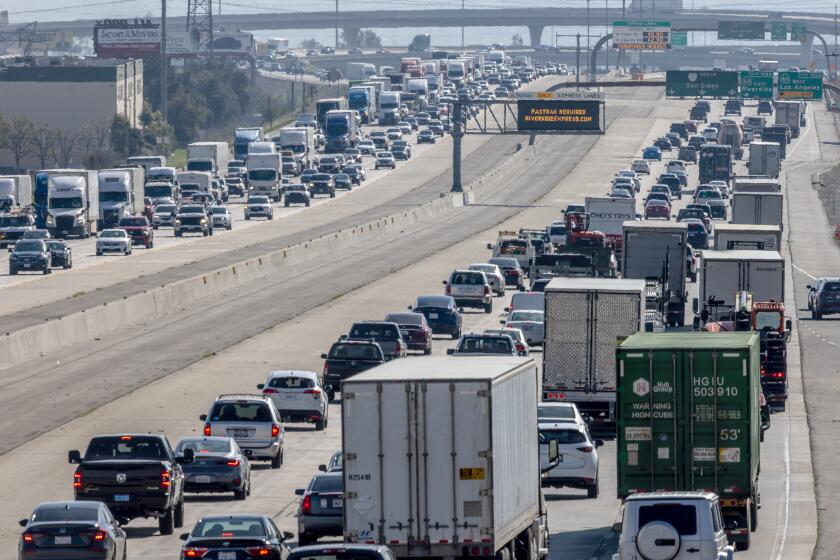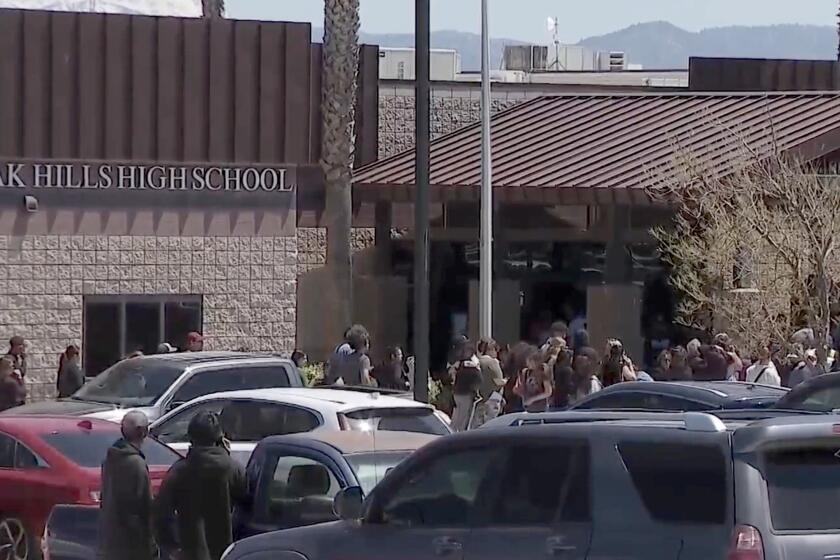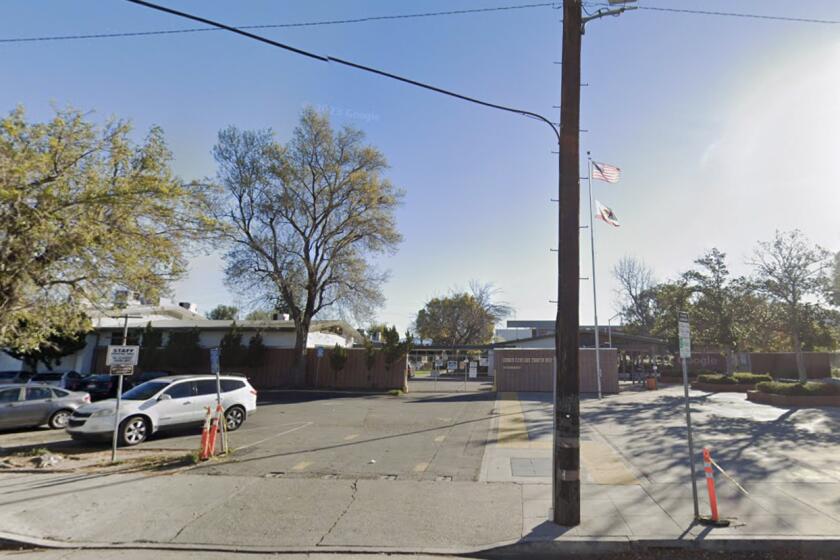Politics clouds anti-gang fight
As a wave of high-profile gang shootings continues to rattle parts of Los Angeles, city leaders are locked in a turf battle of their own over who should control gang-prevention programs and the millions of dollars to pay for them.
Each side blames the other for waging the kind of political infighting that for years has hamstrung the city’s ability to combat some of the nation’s worst youth violence.
Some leaders fear the impasse will only raise public doubt about City Hall’s ability to rise above territorial squabbles and act responsibly.
“We have to get through the political battles for the good of the city,” said Councilwoman Janice Hahn, who is promoting a $30-million parcel tax for the November city ballot to fund new gang-prevention programs.
The current friction involves Councilman Tony Cardenas, who chairs a committee on gangs, and City Controller Laura Chick. Cardenas is fighting a plan by Chick to shift gang-prevention services, now under council control, to Mayor Antonio Villaraigosa’s office.
Chick made her recommendation in a report last month that criticized the city for scattering a jumble of services across more than a dozen departments and spending millions of dollars on programs that have proved ineffective in turning youths away from gangs.
Since then, she and Cardenas have accused each other of delaying, with their feud spilling into public view two weeks ago during an appearance on the radio program “Which Way, L.A?” and continuing in statements issued by their offices.
Chick, a former council member and City Hall fixture for 15 years, criticized Cardenas for “stonewalling” her report.
Cardenas, a former state assemblyman who has made himself an authority on juvenile justice, responded that he needed time to digest her findings ahead of a Friday hearing of his Ad Hoc Committee on Gang Violence and Youth Development.
“Dysfunctional politics is taking over here, which is ironic because [my report] talks about how we need to take politics out of it,” Chick said in an interview last week. “This is about turf.”
Cardenas said that he agreed with Chick on the need to consolidate gang-prevention programs but that handing control to Villaraigosa would undermine that effort.
He said Chick, the city’s fiscal watchdog, lacks the authority to adequately audit gang services in the mayor’s office -- a point she disputes.
“Laura Chick is trying to create this frenzied atmosphere,” said Cardenas, who described her report as a rehash of a gang study from 2007. “I refuse to be manipulated in that fashion. I would be ashamed of myself if I allowed anybody to move on policy for all the wrong reasons.”
Similar fights in years past have constrained efforts to promote effective anti-gang programs.
Then-Mayor Richard Riordan sparred with the City Council nearly a decade ago over his desire to rein in Los Angeles’ controversial L.A. Bridges program, which doles out millions of dollars to groups that provide youth mentoring, street-level interventions and after-school programs.
The council defied Riordan and voted to continue Bridges’ funding despite an audit by then-Controller Rick Tuttle that found Bridges was so poorly run that it should be shut down and overhauled.
As the latest funding feud unfolds, some wonder whether officials have lost sight of the pressing nature of the violence, which has left more than a dozen people dead or injured over the last 2 1/2 weeks in South Los Angeles, Glassell Park and Echo Park.
“I say to them -- because they have the potential to be great leaders -- ‘Just get it done,’ ” said Connie Rice, a co-director of the Advancement Project, a public policy group.
In a city-sponsored report released 14 months ago, the organization called for a massive overhaul of the city’s approach to gang violence, including the creation of a department of neighborhood safety run by a “high-powered, politically skilled” gang czar who would recast the city’s many anti-gang programs.
“The time for studying this is over,” Rice said.
Some at City Hall criticize Cardenas for trying to maintain his powerful hold on gang services at the expense of moving forward aggressively, saying his committee has not done enough to advance the city’s response to youth violence. Those critics say that Cardenas has had trouble getting members of his own gang committee to show up at meetings.
Cardenas said he has labored to ensure that the city spends its money on programs that make a difference. He pointed out how his committee recently produced a new “model” to redefine gang intervention work, a step that will allow the city to create clearer guidelines for programs seeking money. That process alone took months.
But some elected leaders want swifter action.
Council members Wendy Greuel and Hahn called last month for the council to advance Chick’s recommendation of consolidating programs in one office that reports to Villaraigosa.
Under their proposals, the controller would perform fiscal and performance audits every six months -- a step that could require a voter-approved change to the City Charter.
“This is a crisis,” Greuel said. “We have to move quickly. Politics have to be put aside for us to address the issue of gang violence in Los Angeles.”
Yet even as the Greuel-Hahn plan advances, Villaraigosa and his aides have sent mixed signals about whether they want the responsibility and whether the consolidation would face new organizational challenges, according to people involved in the matter.
The mayor launched an anti-gang strategy in his office last year -- hiring a gang czar to coordinate the city’s many programs and targeting police and prevention resources at eight gang-reduction zones.
Cardenas said he and Villaraigosa have spoken about an alternative to Chick’s plan that would create a high-level group in City Hall to oversee program management.
Villaraigosa did not offer details about his plans, but said: “I expect we’ll be moving ahead very soon.”
--
More to Read
Start your day right
Sign up for Essential California for news, features and recommendations from the L.A. Times and beyond in your inbox six days a week.
You may occasionally receive promotional content from the Los Angeles Times.






